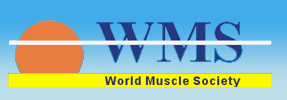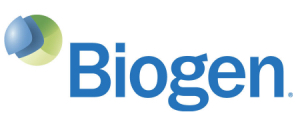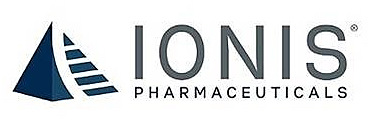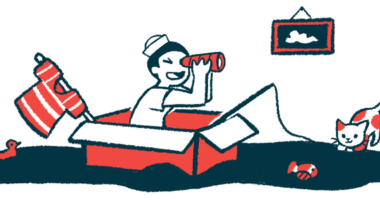SMA Therapy Candidate Nusinersen Shows Potential Treatment Benefits in New Trial Data

 In a late-breaking session at the 2016 World Muscle Society Congress in Granada, Spain, Biogen and Ionis Pharmaceuticals presented new data from clinical trials for their co-developed drug candidate nusinersen for treating spinal muscular atrophy (SMA).
In a late-breaking session at the 2016 World Muscle Society Congress in Granada, Spain, Biogen and Ionis Pharmaceuticals presented new data from clinical trials for their co-developed drug candidate nusinersen for treating spinal muscular atrophy (SMA).
Nusinersen, a potentially disease-modifying SMA therapy, is an antisense oligonucleotide (ASO) designed to alter splicing of SMN2, a gene nearly identical to SMN1, in order to increase production of fully functional SMN protein.
SMA is characterized by motor neuron loss in the spinal cord and lower brain stem, which results in the development of severe and progressive muscular atrophy and weakness. There is currently no approved treatment for SMA, but Nusinersen ASO technology has shown potential to increase the amount of functional SMN protein in infants and children with SMA.
Regulatory agencies in the U.S. and European Union have granted nusinersen special status intended to expedite the investigative review process, including FDA Orphan Drug status and Fast Track Designation in the U.S. and Orphan Drug Designation in the E.U.
 Biogen reports that a rolling submission to the U.S. FDA of a New Drug Application (NDA) for approval to market nusinersen has been filed, and submission of a European Medicines Agency Marketing Authorization Application is planned for this week. Biogen says it will initiate more regulatory filings in other regulatory jurisdictions in coming months.
Biogen reports that a rolling submission to the U.S. FDA of a New Drug Application (NDA) for approval to market nusinersen has been filed, and submission of a European Medicines Agency Marketing Authorization Application is planned for this week. Biogen says it will initiate more regulatory filings in other regulatory jurisdictions in coming months.
The companies’ last minute presentations at the Grenada Congress included safety results from an interim analysis of the Phase 3 ENDEAR study in infantile-onset SMA, plus encouraging preliminary results from the NURTURE Phase 2 open-label study in pre-symptomatic infants. Biogen and Ionis also reported a recent analysis of an ongoing Phase 2 open-label study in patients with later-onset SMA.
“We continue to be encouraged by the consistently positive results with nusinersen across our clinical program, including our first data in infants treated before they show signs of the disease,” said Wildon Farwell, senior director of SMA clinical development at Biogen in a joint Biogen/Ionis press release.
“NURTURE is the first study to evaluate an investigational therapy in pre-symptomatic infants genetically at risk for SMA. In this analysis, infants for up to one year achieved motor milestones in timelines more consistent with normal development than what is observed in the natural history of patients with Type 1 SMA,” Farwell said.
Interim data from Phase 3 ENDEAR trial
 Biogen and Ionis report that infantile-onset SMA patients treated with nusinersen in the ENDEAR trial have, in an interim analysis, demonstrated a statistically and clinically significant improvement in the controlled, Phase 3 study’s primary endpoint: motor milestone responders as measured by the Hammersmith Infant Neurological Examination (HINE), defined as more patient improvement than worsening in motor milestone categories such as kicking, head control, rolling, sitting, crawling, standing, and walking.
Biogen and Ionis report that infantile-onset SMA patients treated with nusinersen in the ENDEAR trial have, in an interim analysis, demonstrated a statistically and clinically significant improvement in the controlled, Phase 3 study’s primary endpoint: motor milestone responders as measured by the Hammersmith Infant Neurological Examination (HINE), defined as more patient improvement than worsening in motor milestone categories such as kicking, head control, rolling, sitting, crawling, standing, and walking.
The study indicates that nusinersen has been generally well-tolerated with an acceptable safety profile and no adverse events related to treatment. Based on these positive interim results, patients electing to do so will be transferred to the SHINE open-label extension study, enabling them to continue receiving nusinersen.
Following that transition, the ENDEAR study will be closed once participants complete their final study visit and detailed efficacy data from the trial will be presented at a future medical conference.
First clinical data in pre-symptomatic SMA patients from Phase 2 NURTURE
An interim analysis of the ongoing, open-label, 30-month Phase 2 NURTURE study presented at the Granada Congress reported that infants treated with nusinersen showed both motor function improvements and significant motor milestones, such as full head control, independent sitting, standing with support, standing unaided, and walking with support measured using validated scales.
The study’s primary endpoint was defined as time to respiratory intervention (assisted ventilation for six hours or more per day for seven or more days or a tracheostomy), or death.
At the time of the interim analysis, all patients treated with nusinersen were alive and none had required respiratory intervention.
This interim analysis included data from 13 genetically diagnosed, pre-symptomatic SMA patients who had been enrolled in the trial for a minimum of 64 days and up to 13 months. Three infants experienced adverse events considered possibly related to nusinersen, all of which were satisfactorily resolved. No infants have discontinued or been withdrawn from the NURTURE study, which is currently active and enrolling participants, and no new safety concerns have been identified.
“These findings reinforce the potential of nusinersen, and we remain focused on bringing this investigational treatment to patients and families as quickly as possible,” said C. Frank Bennett, Ph.D., Ionis senior vice president of research and leader of the neurological disease franchise.
“We are grateful for the commitment and contributions of the investigators, patients and families that have made the rapid development of nusinersen possible across a range of patients.”
Supportive data from ongoing open-label Phase 2 trials presented at Congress
Also presented by Biogen and Ionis at the World Muscle Congress were exploratory efficacy and safety data from two open-label Phase 2 trials (CS2/CS12) in which it was found that among 28 patients with later-onset SMA (consistent with types 2 or 3), those treated with nusinersen exhibited several categories of motor function improvement over intervals of up to nearly three years, contrasting with the stable or slow decline in motor function scores typically seen in patients with later-onset SMA as the disease progresses.
Additionally, most of the adverse events observed were mild to moderate and were not deemed to be related to nusinersen, and no serious adverse events were related to the study drug.
The nusinersen clinical trial program in summary
The nusinersen partners’ Phase 3 clinical trials program encompasses two registrational studies: ENDEAR and CHERISH. The 13-month ENDEAR study is investigating nusinersen therapy in 122 infantile-onset SMA patients, including patients with SMA signs and symptoms onset at earlier than six months old and have been screened at an age of less than seven months.
Based on insights gained from earlier-stage studies and discussions with regulators, the investigators added a primary endpoint to ENDEAR earlier this year to evaluate the proportion of motor HINE milestone responders. In light of the above-cited interim analysis, the ENDEAR study will be terminated with its participants offered transition into the SHINE open-label study in which all participants will receive nusinersen therapy.
The 15-month CHERISH trial, which was fully enrolled as of March 2016, is investigating nusinersen in 126 non-ambulatory patients who have later-onset SMA, including participants whose signs and symptoms occurred when they were older then six months and whose age was 2 to 12 years at the time of screening for the study.
The SHINE open-label extension study for patients who previously participated in ENDEAR and CHERISH is still open and intended to evaluate nusinersen’s long-term safety and tolerability.
The EMBRACE and NURTURE Phase 2 studies are designed to collect additional data on nusinersen. The EMBRACE investigators are collecting additional data on a small subset of patients with infantile or later-onset SMA who do not meet the age and other criteria for participation in the ENDEAR or CHERISH trials.
The ongoing NURTURE study is focused on pre-symptomatic infants who were less than 6 weeks of age at the time of their first dose of nusinersen in order to determine whether treatment with the drug prior to onset of symptoms could prevent or delay onset. All of these studies are being conducted globally.
For more information, visit https://www.biogen.com.and https://www.ionispharma.com







